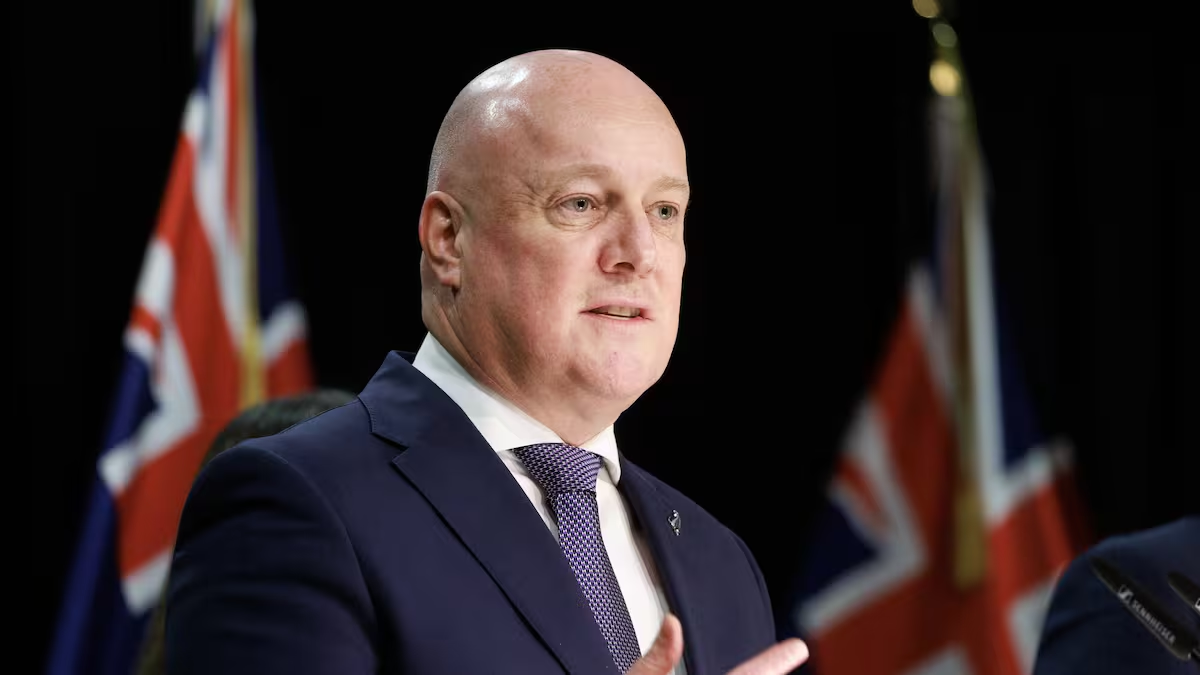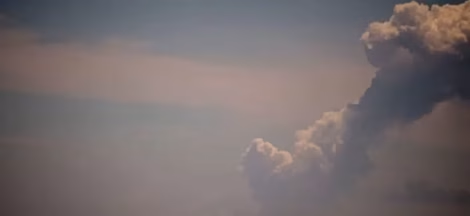The Ipsos Issues Monitor is unlike other polls. Conducted four times a year, it asks voters which issues are most important to them and which party they think is best at handling those issues.
It makes grim reading for National. On the top 20 issues facing voters, it’s judged best at handling just two: law and order, and defence and foreign affairs. All the rest, from inflation, to housing, to unemployment, to taxation, to climate change to Māori issues, are dominated by Labour, with two appearances by the Greens and one by Te Pāti Māori.
National is losing on almost everything. You need to go back to 2020-21 to find polls as bad as this one.
For the first time since October 2021, National has fallen behind on the issue of the economy. In February 2024, the first poll after the change of Government, 47% of respondents rated National best on that issue, more than twice as many as Labour, which polled just 22%.

National’s polling has plummeted 18 points on this topic to just 29% thinking it is the best economic manager, with Labour rising to 33%.
Voters losing faith in the party’s economic competence cuts to the heart of how the party sees itself – the party’s self-image is based on the idea that it is the party of sound economic management.
Its pitch, ahead of anything its MPs say on health, education, defence, or indeed anything else, is that a three-year term with National at the helm will mean three years of sound economic decision-making.
That National polls ahead of Labour on issues of economic management is close to being a law of politics, akin to the sun rising in the east and setting in the west. It drives Labour nuts because Labour can do an objectively good job of managing the economy without significantly shifting voters’ perceptions of economic management.
It’s such a big deal that in 2020, when Labour’s internals finally showed the party opening up a rare lead on the economy, the party briefed the numbers out to the media over fish and chips, cheap beer and fizzy drinks.
The poor polling puts Christopher Luxon’s leadership at an inflection point.
National leaders are expected to win.
It is very difficult to see a situation in which a National Party, not trusted on the economy, is able to win an election next year.
Particularly when economic issues, according to the Ipsos poll, are still among the most important for voters (inflation, the economy, and unemployment are ranked among the top five issues affecting voters in the Ipsos poll).
Across the world, voters are losing patience with incumbents who are struggling to sell necessary post-pandemic fiscal consolidations at a time of still elevated inflation and often slow growth – British Prime Minister Keir Starmer seems unlikely to make it to the next election.
It is not axiomatic that difficult times make for unpopular governments.
Take former Prime Minister Sir John Key. Under Key, by many metrics, the economy was far worse than it is today, particularly in the horror year of 2012. Today’s relatively high unemployment rate of 5.3% (where it’s expected to peak) is equal to some of the lowest rates chalked up under the Key Government, when unemployment was consistently in the high fives and rose as high as 6.7%.
While emigration is at record levels with more than 72,700 Kiwis leaving in the year ended September 2025, that’s only slightly higher than the previous peak of February 2012, when 72,400 Kiwis left – a number that is proportionally far worse than today’s figure when you consider the population was about 900,000 smaller.
Public services were also under strain. In 2011 and 2012, Finance Minister Bill English delivered “zero” Budgets, which included no net new spending on public services. The current lot have been far more generous, with net new discretionary spending of $3.2b in Budget 2024 and $1.3b in Budget 2025.
National staff recall 2012 as a rough year – a year they feared could signal the beginning of the end for Key, but looking back on it now, you can’t see it in the polling. National polled in the 40s and 50s and Key’s preferred prime minister ratings were mostly in the 40s.
Key, as ever, had some luck.
The opposition was a mess and his management of the financial crisis and the Christchurch Earthquakes established his bona fides as a serious and competent leader. Inflation was low, meaning there was less pressure to pile more money into public services.
But it’s not all luck. Key also had an ability to acknowledge when things were going terribly and talk about what he was doing to fix them. His 2012 State of the Nation Speech, his first big speech since winning the 2011 election focuses mostly on the fact that everything was likely to be worse than forecasts predicted when New Zealanders went to the polls the year before, thanks to the Euro crisis.
In a speech later that year in Australia, he laid out in quite some detail (to an audience that included two Australian prime ministers) why the New Zealand economy was stuffed.
Voters seemed to have accepted these diagnoses, and accepted the economic pain of 2012, as the price to pay for the brighter future that his Government offered. You can disagree with whether that brighter future ever arrived, but it seems that in 2012, voters had enough faith in Key and his Government to suffer through some astonishingly difficult economic times – voters’ belief in the government’s prognosis outweighed the travails of the present.
That sense of hope is lacking now.
Right track/wrong track polls show most voters think the country is on the wrong track. Tomorrow will not be better than today. That means that not only are voters unhappy with the state of things as they stand, but they don’t think the future will be much better.
A lot of this comes down to the leadership. Many of the Government’s decisions are justifiable: tax cuts as fulltime workers on the minimum wage approached the 30% tax bracket, slowing the growth in public spending as the forecast return to surplus is pushed back to next decade – both seemingly unpopular decisions, but one for which an argument can be made by a more fluent politician.
The Government is being thrashed about even on issues where it’s had some success; it trails Labour handedly on the issue of housing in the Ipsos poll. Housing affordability has improved markedly in New Zealand over the course of this Government.
Interest.co.nz’s median multiple tracker, a measure of housing affordability, has the national median house price at 6.3 times the median household income down from a peak of 9.3 times in 2021, and down from 6.9 at the election.
That’s a positive story of falling prices and rising incomes, but it hasn’t sunk in.
RNZ this month has been interviewing the young New Zealanders giving up on this country and moving to Australia; two of those interviewed cited the fact they believed housing was more affordable in Melbourne than New Zealand and both blamed coalition policy for it.
Housing in most parts of Australia is vastly less affordable than New Zealand; Melbourne’s median multiple is 9.7, far higher than New Zealand’s least affordable main centre (Auckland at 7.6).
In Sydney, it’s even worse, with a multiple of 13.8. The story is similar in rents, which are up 44% over the last five years, compared to about 30% in New Zealand.
There are plenty of good reasons to move to Australia, but housing affordability, at least in the state capitals, isn’t one of them.
It’s an incredible failure of politics, that despite wearing incalculable political pain for tanking the value of most households’ most valuable asset, the Government has failed to spin itself any political upside from what is something of an achievement – it’s on track to be the first Government in a generation to bequeath a median multiple lower than it inherited (thanks it must be said, to planning decisions begun under Labour).
That failure of politics ultimately rests with the leader and it has many political watchers wondering how Luxon is able to survive.
The answer is that National’s famously jumpy caucus is still fighting the last war.
Burnt in the self-immolation of the party’s last poll-induced coup in 2020, few in the caucus are keen for a repeat of the experience. They deduce that voters crave stability. The question for them isn’t whether there is a better leader of the National Party (many think there is), but whether that leader is so clearly superior they’re worth rolling a sitting prime minister for.
Complicating things is the fact that the Government’s fortunes could well be about to turn around.
And the fact that outside of Labour, the putative alternative government is a mess, with Te Pāti Māori and the Greens both suffering through the most challenged Parliamentary terms of either party’s history.
The delayed economic recovery is under way; the next few rounds of economic data are expected to come in at okay to positive.
Voters seem to be feeling the turnaround. Last week’s Taxpayers’ Union Curia poll showed that for a fourth straight month the right track/wrong track indicator was improving – it’s still -6% meaning a net 6% of voters think the country is on the wrong track, but that’s the best rating chalked up in that poll since April.
That poll, interestingly, has National comfortably ahead of the economy at 26.8% to 37.6% and inflation at 33.2% to 26.9%.
The housing market, the store of most New Zealanders’ wealth, is also recovering. Forecasters predict house price increases next year after four years of falls. The state of the housing market makes for an interesting comparison with 2012. Back then, despite the economic gloom, low interest rates saw house prices rise nearly 10%, lifting the paper wealth of the majority of households. It’s impossible not to wonder whether this fact alone shielded voters from the firehose of negative economic data that year.
The economy was objectively doing poorly, but if you had a job and a home (as majority of New Zealanders did) you probably felt better off, and maybe thanked the Government for it.
For a caucus staring down the barrel of being the first one-term National Government in history, that’s a lot of faith to put in an economy which has to this point worked against its interests.
The risk in always fighting the last war is that you lose the next one.
Source link




 Architectural designer takes woman to Disputes Tribunal over unpaid invoice
Architectural designer takes woman to Disputes Tribunal over unpaid invoice